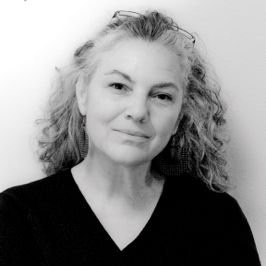transparency
See the following -
40 Healthcare Apps for Clinicians and Consumers to Know
It seems like every week in 2015 — if not most days — brought news of a new healthcare startup company whose app garnered millions in early funding. Not all of these apps will take off, and many are still vying to snag the dominant spot in their respective categories. For example, we don't yet know who will become the 'Uber of healthcare' yet, but a handful of companies with clever names and eye-catching platforms are aggressively grappling for the title. The same can be said for apps in the telehealth, prescription management, physician reference, patient portal and house call categories. Here are 40 apps to know from both the provider and patient sides, some of which just might end up edging out the rest come 2016...
- Login to post comments
45 States Fail Healthcare Price Transparency Test
All but five states received a failing grade this year on the way they provide healthcare price transparency. Read More »
- Login to post comments
5 Benefits Of Open Source Technology For MU
Founded on transparency and open standards, OS technology is a largely underexplored solution to meet MU criteria Read More »
- Login to post comments
5 Government Health Challenges To Watch
The Obama Administration brought a new public policy strategy to the federal government in 2009: challenges, with prize money for private organizations that design solutions (typically software or apps) for policy problems. Read More »
- Login to post comments
5 Reasons Hospitals Need a Mobile App
If patient engagement is the holy grail of healthcare and if hospital revenue will increasingly hinge on the ability to connect with patients, then why are so many hospitals missing out on one of the most effective means of engaging patients -- a branded mobile application? Read More »
- Login to post comments
5 Things I Learned at TEDGlobal
The theme at TEDGlobal this year was "Radical Openness," indicating the effects of open-source technology, collaboration, social media, and DIY invention on our world. Read More »
- Login to post comments
6 Examples Of Open Source Best Practices In Knowledge-Sharing Projects
 The very effort of creating open source software is a massive knowledge-sharing experience, covering all the domains of software development with many methods and practices. Although there is rarely only one way to achieve a goal, open source communities have, over time, honed their knowledge into best practices as a natural byproduct of the open collaboration and transparency passed on within their respective communities. But what about best practices that span communities, which are useful beyond the unique needs of a single project and broadly applicable to any and all open source software efforts? I'll look at six different knowledge-sharing communities that take six approaches to gathering, maintaining, and distributing their best practices.
The very effort of creating open source software is a massive knowledge-sharing experience, covering all the domains of software development with many methods and practices. Although there is rarely only one way to achieve a goal, open source communities have, over time, honed their knowledge into best practices as a natural byproduct of the open collaboration and transparency passed on within their respective communities. But what about best practices that span communities, which are useful beyond the unique needs of a single project and broadly applicable to any and all open source software efforts? I'll look at six different knowledge-sharing communities that take six approaches to gathering, maintaining, and distributing their best practices.
- Login to post comments
7 Predictions For The Future Of Health Care Technology
I’ve got an awesome job. Every day, I envision the future of healthcare and strategize how innovative technologies can transform how we give and receive care and, ultimately, make the world a happier and healthier place. Read More »
- Login to post comments
7 Thoughts on the Importance and Future of Blockchain in RCM
Blockchain is being put forward as a new means to potentially help solve interoperability challenges in healthcare. Blockchain technology is a permanent log of online transactions or exchanges. It emerged in 2009 as the foundation for trading the digital currency bitcoin. The entire log is duplicated across a network of computers. Users interactions on the network can add to the record of transactions...
- Login to post comments
7 Ways to Discuss Legal Matters with an Open Community
 Having watched a fair number of people attempt to engage both the Open Source Initiative's licensing evaluation community and the Apache Software Foundation's legal affairs committee, I'd like to offer some hints and tips for succeeding when it's your turn to conduct a legal discussion with an open community. First and foremost, make sure the person conducting the conversation is both qualified and empowered. Don't send proxies; they simply frustrate the community, who quickly work out that your representative is always playing the second-hand car salesman and going to the back room to ask for a deal...
Having watched a fair number of people attempt to engage both the Open Source Initiative's licensing evaluation community and the Apache Software Foundation's legal affairs committee, I'd like to offer some hints and tips for succeeding when it's your turn to conduct a legal discussion with an open community. First and foremost, make sure the person conducting the conversation is both qualified and empowered. Don't send proxies; they simply frustrate the community, who quickly work out that your representative is always playing the second-hand car salesman and going to the back room to ask for a deal...
- Login to post comments
8 Benefits Of Agile Software Development
In my previous post [...] I discussed a number of benefits to using an agile process to manage software development projects. In this post, I’d like to expand upon these benefits and illustrate why they are compelling reasons to consider Agile. Read More »
- Login to post comments
8 Clever Ideas For Making Government Work Better With Data
How can we make the places we live more awesome through data? Read More »
- Login to post comments
8 Ways To Open Up Civic Data So That People Actually Use It
The Knight Foundation just gave $3.2 million to organizations that are making public data more useful. These are our favorites. Read More »
- Login to post comments
A Few Thoughts About The Health-Care Marketplace
Is it time for rate-setting in the health-care marketplace? Is it time for single-payer health care? Or an end to the entire for-profit system of mis-aligned incentives? Or transparency? Can we continue in this vein? Read More »
- Login to post comments
A Guide to Building Trust in Teams and Organizations
 My travels globally have given me a feeling for how best to work in many different contexts—like Latin America, West Africa, North Africa, and Southeast Asia, to name a few. And I've found that I can more easily adapt my work style in these countries if I focus on something that plays a role in all of them: trust. In The Open Organization, Jim Whitehurst mentions that accountability and meritocracy are both central components of open organizations. Trust is linked to both of those concepts. But the truth, I've found, is that many people don't have the information they need to determine whether they can trust a person or not. They need data, along with a system to evaluate that data and make decisions...
My travels globally have given me a feeling for how best to work in many different contexts—like Latin America, West Africa, North Africa, and Southeast Asia, to name a few. And I've found that I can more easily adapt my work style in these countries if I focus on something that plays a role in all of them: trust. In The Open Organization, Jim Whitehurst mentions that accountability and meritocracy are both central components of open organizations. Trust is linked to both of those concepts. But the truth, I've found, is that many people don't have the information they need to determine whether they can trust a person or not. They need data, along with a system to evaluate that data and make decisions...
- Login to post comments